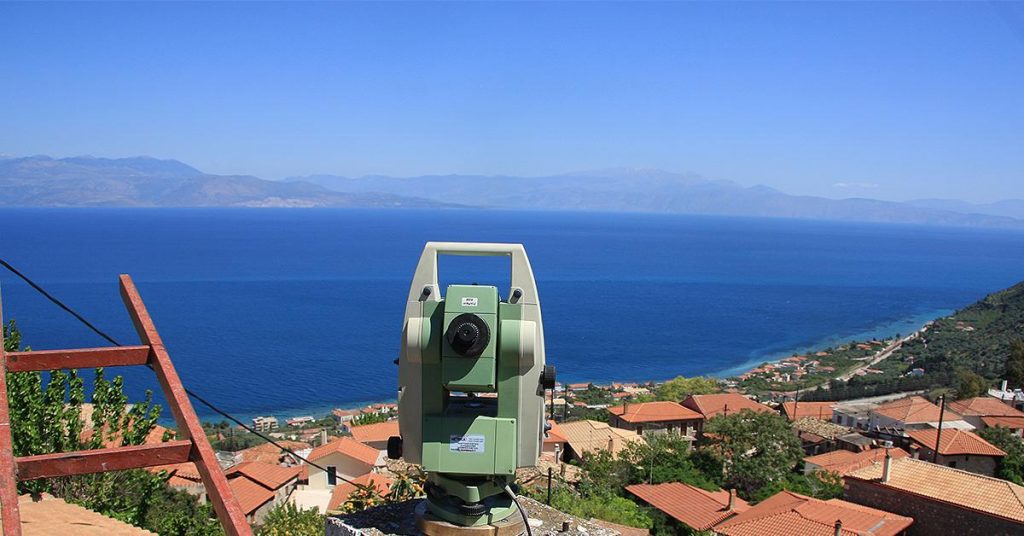
Geodetic Monitoring is the study of the earth's geometry, and at the same time, developing methods and techniques using space technology to monitor them. If used judiciously with geotechnical instrumentation, geodetic monitoring provides co-related data that is relevant and extensively used in civil construction and structural monitoring. Encardio Group uses an in-house developed control box with advanced software to control robotic total stations.
The geodetic system ensures valuable and timely monitoring of the displacements, providing high measurement density, simultaneous wireless transmission, and automatic entry of the results in the monitoring database.
Geodetic Surveying definition includes using geotechnical instruments at pre-construction, during-construction, and post-construction stages to monitor the fundamental parameters affecting the construction. Due to its relatively low cost, it is widely spread and used in all civil engineering projects.
Let’s discuss more on geodetic surveying, its importance, and application areas.
What is the geodetic survey?

When there’s a large area, usually beyond 100 square kilometers, the surveying requires the consideration of the curvature of the earth. Such type of surveying serves as the definition of a geodetic survey. In geodetic surveying, two stations (points) far from each other are chosen. The latitude and longitude of these two points are determined astronomically. The line joining these two points is known as the baseline, which is measured precisely.
The position of a third station is defined by the angle made with each end of the baseline. The complete process is known as triangulation. It is continued until the entire survey land is mapped and a geodetic survey marker is employed.
Now that we are done with our introduction to geodetic surveying, let’s take a look at what is geodetic level.
What is the geodetic level?
Geodetic leveling is the process of determining the relative height of the stations or points on the earth’s surface.
Level surface: It is defined as the surface, which is parallel to the earth’s mean spheroidal surface.
Level Line: It is the line lying on the level surface and, hence, it is normal to the plumb line at all points.
Horizontal Line: It is a straight line tangential to the level line.
Vertical Line: It is the line normal to the level surface.
What is the objective of geodetic surveying?
The following are the objectives of geodetic surveying:
- The main objective of geodetic surveying is to determine the precise position of distant points on the surface of the earth.
- To get reconnaissance information and preliminary data required by engineers for selecting suitable routes and sites.
- To prepare efficient structural designs.
- The importance of control points in surveying is that they allow to define the selected locations
- The geodetic survey system guides construction forces by setting stakes or otherwise marking lines, grades, and principle points and by giving technical assistance.
- To measure construction items in place to prepare progress reports
- To carry out dimensioning of structures for preparation of as-built plans
- To detect settlement using pre-installed targets on buildings, structures, pavements, embankments, etc.
- To monitor the ongoing construction project 24/7 so that mishaps can be avoided.
- To monitor deformations taking place in the structures, bridges, tunnels, and buildings.
- To ensure the safety of the nearby assets to the construction land.
| Also Read: A Guide on Geotechnical Instruments: Types, & Application |
Geodetic Surveying Application
The application of Geodetic Surveying includes Geodetic monitoring along with geotechnical instrumentation that provides data widely used for structural monitoring.
1. Settlement detection: Leveling measurement of preinstalled targets on buildings, structures, pavements, deep points, and embankments using high-accuracy digital levels and invar staff.
2. 3D optical targets
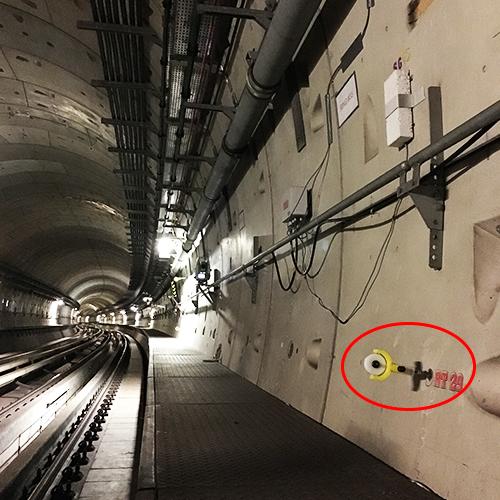
The geodetic survey instrument includes the three-dimensional displacement measurements with bi-reflex targets or monitoring prisms that are installed in tunnels, structures buildings, etc., using high-end total stations to provide for manual as well as automatic data.
An in-house software by Encardio Rite named Terramon is available that can be installed on a tablet, laptop, or PC to achieve semi-automatic measurements, maximize their accuracy, and minimize field time.
For automatic monitoring, Drishti or Terramove is available depending on the requirement from project to project.
Terramove can also be used for co-relating data from TBM sensors with data available from geotechnical and geodetic instrumentation, whether manual or automatic.
3. Automatic monitoring system
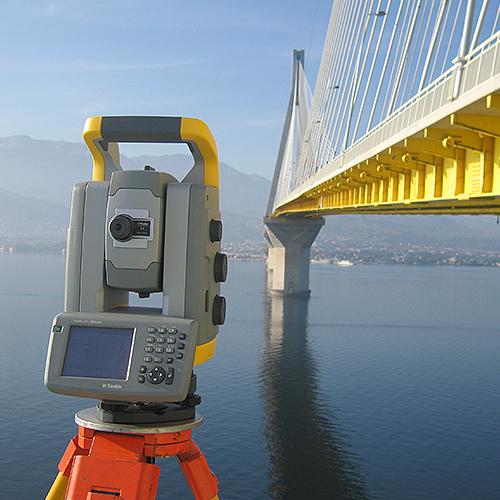
Project safety requires 24/7, high frequency, & accurate measuring monitoring systems.
The Encardio group uses an in-house developed system that consists of a series of network robotic total stations, each one controlled by the Terramon software, installed in the dedicated total station control box.
The system ensures valuable and timely monitoring of the displacements, providing high measurement density, simultaneous wireless transmission, and automatic entry of the results in the Terramove monitoring database.
4. Laser scanning
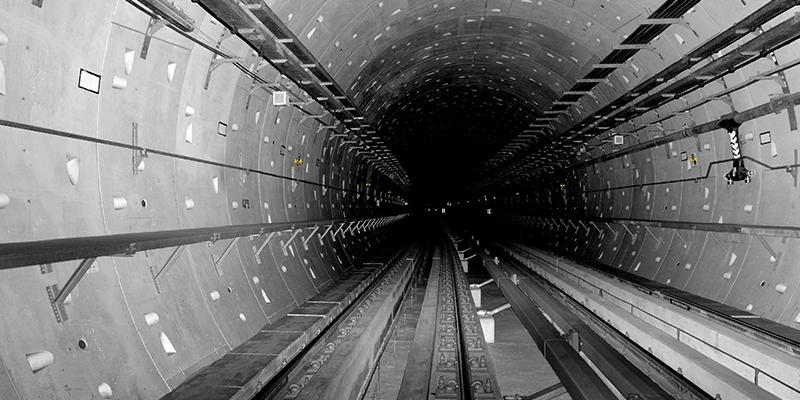
It is a method based on exceptionally dense mapping of three-dimensional coordinates of the points on the surface to be monitored. It is one of the most widely used geodetic surveying techniques.
Laser scanning is a rapid and reliable surveying method, collecting data in static, stop-and-go, or kinematic mode.
From the point cloud produced, the exported section profiles can be used to monitor deformations or displacements mainly in tunnels, but also on other structures or landslide and rockfall areas.
5. Monitoring using drones/UAV
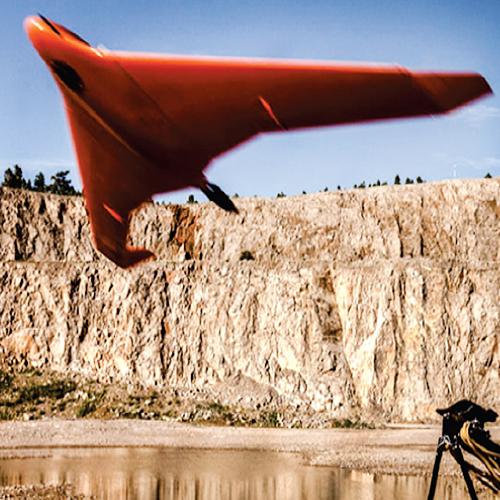
A rapid and safe way of collecting data for large-scale areas like deserts, and mountains where mm accuracy is not necessary but the motion of the mass is vital to be determined.
Unmanned and remotely piloted aircraft follow a preprogrammed flight path. Equipped with HD/IR/Thermal cameras, they capture aerial images over a defined area.
The point clouds, meshes, and 3D models produced are the data to be compared between sequel flights during monitoring time.
6. Tunnel Boring Machines
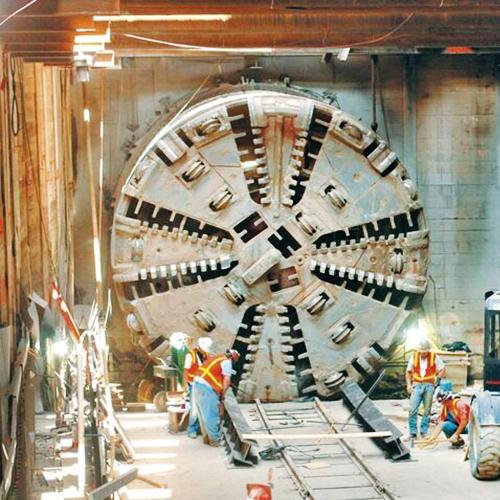
Tunnel excavation is associated inevitably with ground loss and high-pressure conditions which, in turn, results in associated ground movement.
Hence, it is important to closely monitor the TBM parameters when tunneling, especially through urban areas.
Through advanced software, we can integrate the essential parameters from the TBM with the monitoring and geophysical data to provide essential information.
| Also Read: All About Tunnel Boring Machine – Components, Types & Advantages |
Geodetic Survey Solutions
Dilapidation Survey using advanced technologies
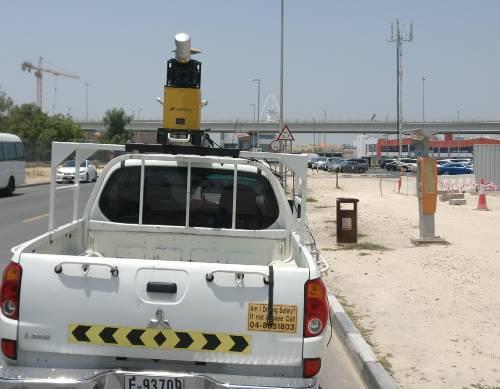 Figure 1: Mobile Mapping System (MMS)
Figure 1: Mobile Mapping System (MMS)A dilapidation survey is carried out using both advanced as well as manual methods. The advanced methodology involves Aerial mapping, laser scanning, and mobile mapping.
- A dilapidation survey involves an inspection of the existing structural condition of the surrounding buildings structures and utilities.
- All prominent defects in the form of cracks, settlement, movement, water seepage, spalling concrete, distortion, subsidence, and other building defects are recorded in photographs together with notes.
- Recording of the position of visible utility infrastructure
- Determination of the type of utility, its age, depth, size, the material it is constructed
- Drawings obtained from various utility agencies are used.
- Physical inspection of the visible utility structures such as existing manholes, light poles, substations, and other similar utilities
- Checking the verticality of the light poles and other vertical features, visually.
- Monitoring and recording in photographs for any broken light poles, broken manholes, etc.
- A dilapidation survey provides monitoring data for ensuring the safety of construction activities and structures in the zone of influence. It thus prevents any false claims that may be raised by the owner of the asset thus saving a lot of time and money on unnecessary litigation.
Project Progress
Drones are used to provide information to clients on the progress of the project.
The drones and fixed wings (aeroplanes) UAVs that are equipped with HD/IR/Thermal cameras or Lidars capture aerial images, videos, or point clouds over a defined area and a specified height with a needed overlap between the image exposures.
Following the progress of a project, quantity or quality is very important for all involved parties. This is a low-cost and precise method to monitor the progress of any large-scale project.
- Photos
- Orth photos
- Mesh 3D Models
- Texture 3D Models
- Drawings
- Videos- Presentations
- Contour Maps
- Area- Volumetric calculations
Geometry control
Encardio Rite also provides Geometry control services for construction projects, laying railway tracks, and design.
Geometry control for construction
- Accurate Surveying Network is the fundamental factor for any successful construction or design plan.
- It is the reference frame of every geodetic measurement; thus, the reliability of land surveys, stakeouts, quantity surveys, deformation monitoring measurements, and as-built surveys is directly connected to it.
- By using high-end equipment, delicate techniques, and methodologies, but mostly by gained experience, Encardio can establish extend or check the surface and underground Geodetic Networks of high accuracy in a short time and in financial terms
Geometry Control for Design
- Building Information Modeling (BIM) is a strategy for the application of information technology to the building industry.
- Can be defined as the method in which we select in real-time 3D surface coordinates of an object, automatically and in a normal grid.
- The operation principle of a laser scanner is the transmission and reception of a visible or not, laser beam, in every desirable direction, which gives the position and intensity of every point of the desired measured surface. RGB data is also available if colour images are overlaid on the point cloud.
Here we come to this exclusive guide on Geodetic Survey and Monitoring. Being cost-efficient as well as accurate, it is the most preferred option to complete the geotechnical monitoring.